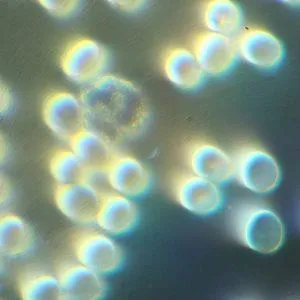
Intestinal disorders
Discover everything about intestinal disorders, including common symptoms, causes, and effective treatment options. Learn how to manage digestive health and improve quality of life ...more
Services
November 30, 2024•2 min read

Live and Dry Blood Analysis
Unlock the insights of live and dry blood analysis for comprehensive health assessment. Explore how this cutting-edge technique offers valuable diagnostic ...more
Services
November 28, 2024•3 min read

Exploring the Power of Bioenergetic Analysis for Holistic Well-being
Bioenergetic Analysis emerges as a transformative therapy in a world where the connection between mind and body is increasingly recognized as vital to our ...more
Services
November 15, 2024•5 min read

Revitalize Your Well-Being with Rife Machine Therapy
Experience the transformative potential of Rife Machine Therapy for holistic well-being. Harnessing cutting-edge frequencies, this therapy aims to promote ...more
Services
November 15, 2024•4 min read

Top Vet in Leeds for Specialized and Emergency Pet Care in 2025
Discover the best vet in Leeds offering expert care for specialized treatments and emergency services. Ensure your pet's health and well-being in 2024. Contact us! ...more
Services
November 14, 2024•6 min read
Search Testimonials
It is important to remember that individual anecdotes and testimonials should not be used as the sole basis for making decisions about medical treatments or therapies.
When it comes to alternative therapies like bioresonance, it is essential to rely on evidence-based research and the advice of trained medical professionals. While some people may have positive experiences with bioresonance for their animals, it is important to approach these claims with caution and seek out reliable information from reputable sources.
Ultimately, the decision to pursue bioresonance or any other alternative therapy for your animal should be made in consultation with a veterinarian or animal health professional who can help you weigh the potential benefits and risks.
Pollen – a nuisance for our animal companions too
Hay fever patients are only too familiar with the problem. Year after year the misery begins in the spring with stinging eyes, runny itchy nose and, in severe cases, with a cough and asthma as well. What is perhaps less well known is that our animals too suffer increasingly from this same medical condition.
Just as with humans, the incidence of allergies is also becoming more frequent in animals. Allergic reactions may be provoked by airborne allergens such as pollen, house dust and house dust mites, amongst other factors. Food intolerance is also on the increase, however, and represents a distressing problem for the affected animals.
Now, in spring, as it gets warmer, allergic animals are all suffering as well. With animals it is mainly their skin which itches or else their
noses run more and they occasionally sneeze. Changes in their coats and reddening of the skin are often noticed in the face, feet and ears. These areas often display bloody claw marks and develop into very painful weeping eczema, indicating the severity of the irritation.
This type of problem in animals can be treated with the allergy programs pre-loaded in the Bicom device.
Dr. med. vet. C. May
Quick Links


Facebook
Instagram
Mail